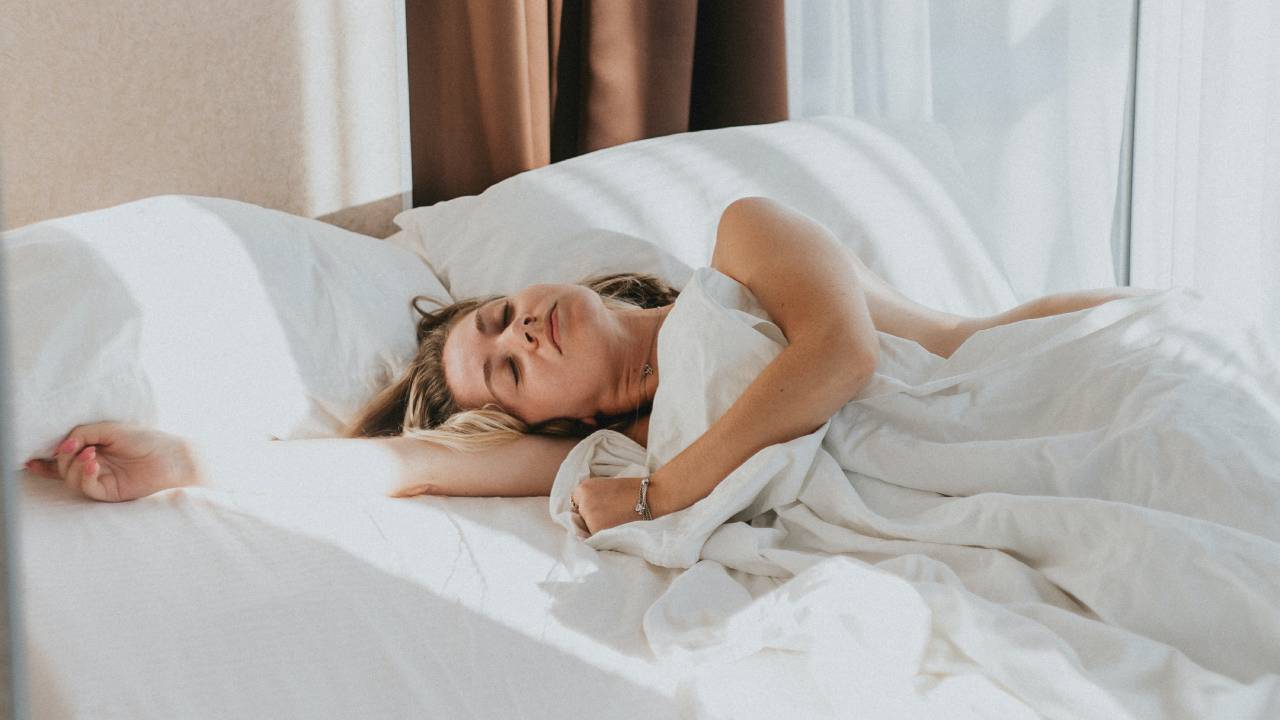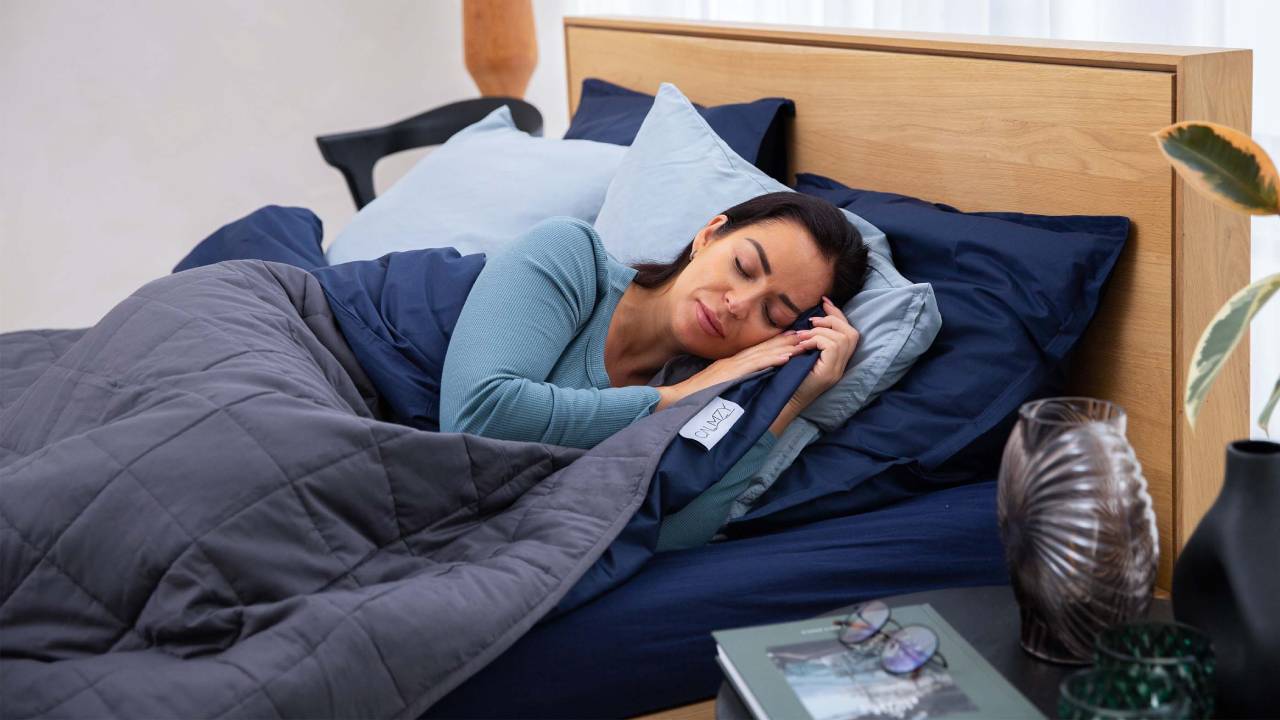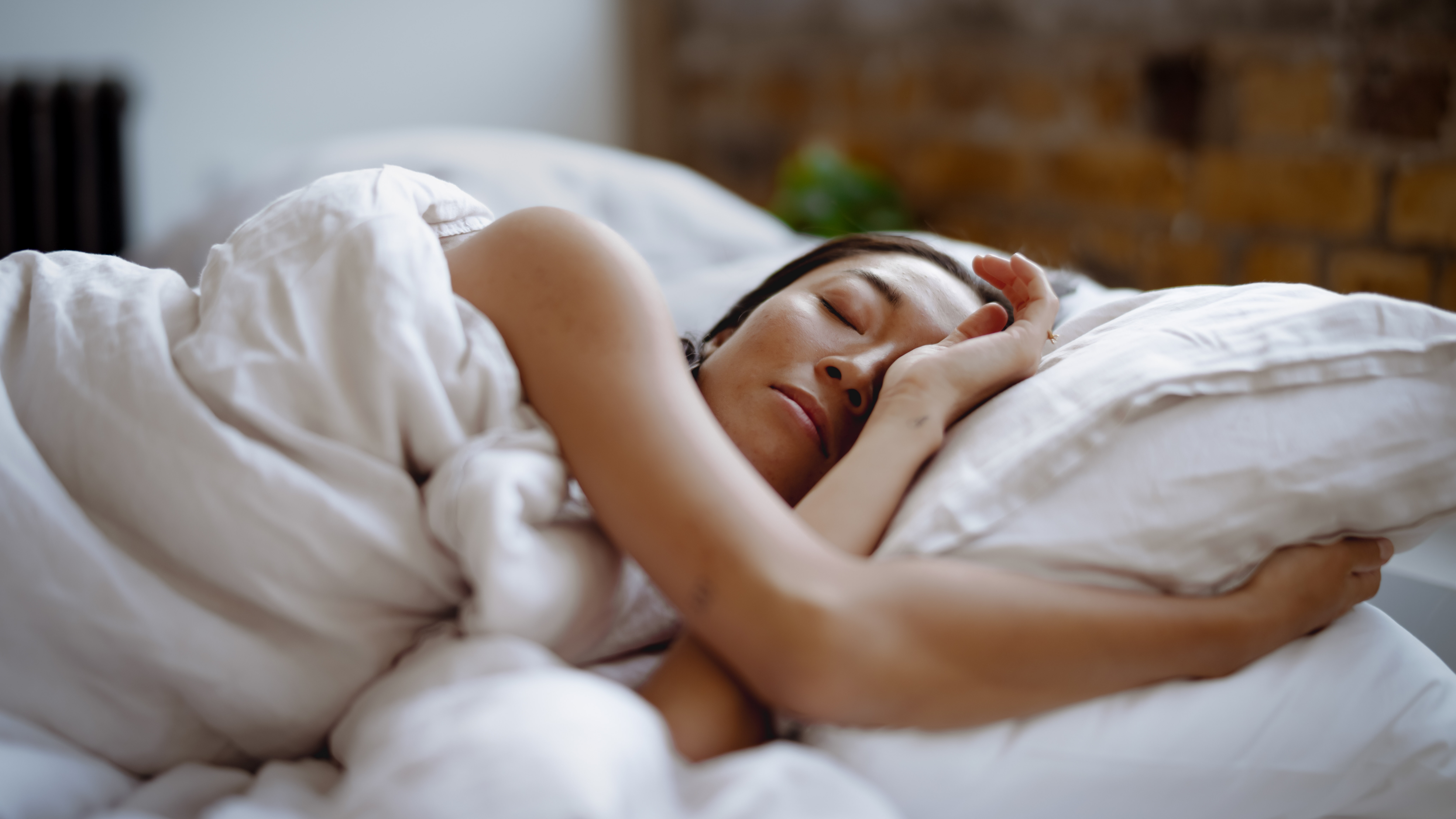

Regardless of how old you are, sleep should always be a priority. But as we age from our 20s and 30s up to our 70s and 80s, how important is it to change our sleeping style?
There’s always been a point of contention over how many hours of sleep you need to get the right amount of rest and feel refreshed in the morning. Research has shown that seven hours sleep is best for people over 35, whereas other studies have found that over eight hours of sleep is better for younger people to help with brain function.
This begs the question: as we age, should we be changing our sleep style? To find out more, I spoke to James Higgins, sleep expert and CEO of Ethical Bedding who said that “understanding the evolution of our sleep needs as we age is vital for maintaining optimal health, as each decade brings its unique set of challenges that affect sleep.”
Below, Higgins explains how you should sleep at each age of your life, from your 20s to your 80s. P.S. Throughout all ages and stages of your life, make sure you have the best mattress to accompany you.
How should you sleep in your 20s?
As Higgins states, our 20s is a time where many people transition from university to working, and there tends to be late nights, partying and socialising which can affect your sleep patterns. “During this critical period for physical and mental development, it's crucial to aim for 7 to 9 hours of sleep,” says Higgins. “In your 20s, it's wise to moderate alcohol consumption, especially before bedtime. Additionally, I recommend a digital curfew to lessen the impact of blue light from screens, which can disrupt sleep by inhibiting melatonin production.”
How should you sleep in your 30s and 40s?
Getting a good night’s sleep is important in your 30s and 40s, as these ages are typically the time where many people will be starting or maintaining a family while balancing careers. This can lead to increased stress which impacts your sleep quality. For new mothers and parents, Higgins suggests that “side sleeping can be more comfortable as it helps alleviate back pain and pressure on the spine, which are common postpartum discomforts. A bamboo mattress with more than 2,000 pocket springs will respond independently to the body's movements, for example.”
Higgins goes on to say that: "Entering our 40s, the changes in our sleep become more apparent. Sleep becomes lighter and more fragmented, a result of ageing and reduced sleep-inducing hormones… Back sleeping can assist in maintaining spine alignment, and a hybrid mattress can provide the needed support.” Higgins also suggests adopting a healthy lifestyle with regular exercise to offset age-related changes to your sleep.
Sign up to the T3 newsletter for smarter living straight to your inbox
Get all the latest news, reviews, deals and buying guides on gorgeous tech, home and active products from the T3 experts

How should you sleep in your 50s and 60s?
The middle stage of life is met with significant changes in sleep quality and quantity, mainly due to the ageing process and menopause. As Higgins says, “In our 50s, hormonal changes significantly impact sleep. Using menopause as an example, we know that these changes can disrupt the body's internal thermostat, leading to night sweats and hot flashes. Managing temperature fluctuations is key, so consider breathable, moisture-wicking sleepwear and bedding.”
In addition to comfortable nightwear, Higgins also suggests prioritising side or back sleeping and investing in products that can help support you and improve your chance of sleeping through the night. He suggests buying extra pillows, investing in a bed that can be adjusted to help with snoring or acid reflux and using blackout curtains.
How should you sleep in your 70s and 80s?
For the later stages in your life, Higgins recommends speaking to a healthcare professional about any sleep issues. But in general, he suggests that people in their 70s and 80s should maintain physical activity and a consistent sleep-wake cycle. Additionally, Higgins says it's important to “create an environment conducive to sleep, such as softer mattresses for better support. Ensuring the bedroom is safe and easy to navigate, is key… exploring options like adjustable beds and specialised mattresses to cater to specific health needs, such as arthritis or chronic pain, can also be beneficial.”

Beth is Home Editor for T3, looking after style, living and wellness. From the comfiest mattresses to strange things you can cook in an air fryer, Beth covers sleep, yoga, smart home, coffee machines, watches, grooming tools, fragrances, gardening and much more. If it's something that goes in your house, chances are Beth knows about it and has the latest reviews and recommendations! She's also in the know about the latest deals and discount codes from top brands and retailers.
Having always been passionate about writing, she’s written for websites, newspapers and magazines on a variety of topics, from jewellery and culture, to food and telecoms. You can find her work across numerous sites, including Wedding Ideas Magazine, Health & Wellbeing, The Bristol Post, Fashion & Style Directory, TechRadar, CreativeBloq and more. In her spare time, Beth enjoys running, reading, baking and attempting craft projects that will probably end in disaster!
-
 I loved the Ressence Type 7 at Watches and Wonders – but the real gem has lurked in its catalogue for six years
I loved the Ressence Type 7 at Watches and Wonders – but the real gem has lurked in its catalogue for six yearsYou've never seen a watch like this
By Sam Cross
-
 I tried a Snapdragon feature that's a game-changer for Netflix, Amazon and more
I tried a Snapdragon feature that's a game-changer for Netflix, Amazon and moreMoises Live can isolate and enhance audio in real-time using the Elite X's NPU
By Mike Lowe
-
 I spent 6 weeks with the FoodMarble Aire 2: here’s what I learned about my gut health
I spent 6 weeks with the FoodMarble Aire 2: here’s what I learned about my gut healthI’ve been testing the clever breath-testing gadget with the companion app over several weeks to find out if it delivers on its promises
By Lee Bell
-
 Oil pulling is going viral on TikTok for stopping morning breath – but does it actually work?
Oil pulling is going viral on TikTok for stopping morning breath – but does it actually work?4 hacks that prevent morning breath, according to a sleep expert
By Bethan Girdler-Maslen
-
 These limited edition McLaren x Loop earplugs are what you need for Formula 1 season
These limited edition McLaren x Loop earplugs are what you need for Formula 1 seasonMcLaren teams up with Loop on limited edition noise-reducing earplugs
By Bethan Girdler-Maslen
-
 5 sleep supplements that help me achieve 8+ hours of rest every night
5 sleep supplements that help me achieve 8+ hours of rest every nightIt took me years to perfect my sleep routine – here are the supplements that helped
By Lizzie Wilmot
-
 3 reasons why you wake up at 3am every night – and how to avoid it
3 reasons why you wake up at 3am every night – and how to avoid itAlways waking up in the middle of the night? This could be why…
By Bethan Girdler-Maslen
-
 This tiny device will automatically disable your distracting apps before you sleep
This tiny device will automatically disable your distracting apps before you sleepSay hello to Kip...
By Lizzie Wilmot
-
 Therabody experts give 7 tips for perfecting your sleep routine for World Sleep Day
Therabody experts give 7 tips for perfecting your sleep routine for World Sleep DayFrom breathing exercises to sleep masks, here’s how to prioritise sleep, according to experts
By Bethan Girdler-Maslen
-
 Loop Dream review: super soft earplugs to help you snooze soundly, even if you’re a side sleeper
Loop Dream review: super soft earplugs to help you snooze soundly, even if you’re a side sleeperSquishy silicone and uniquely shaped ear tips take Loop’s nighttime earplugs to dreamy heights
By Joanna Ebsworth